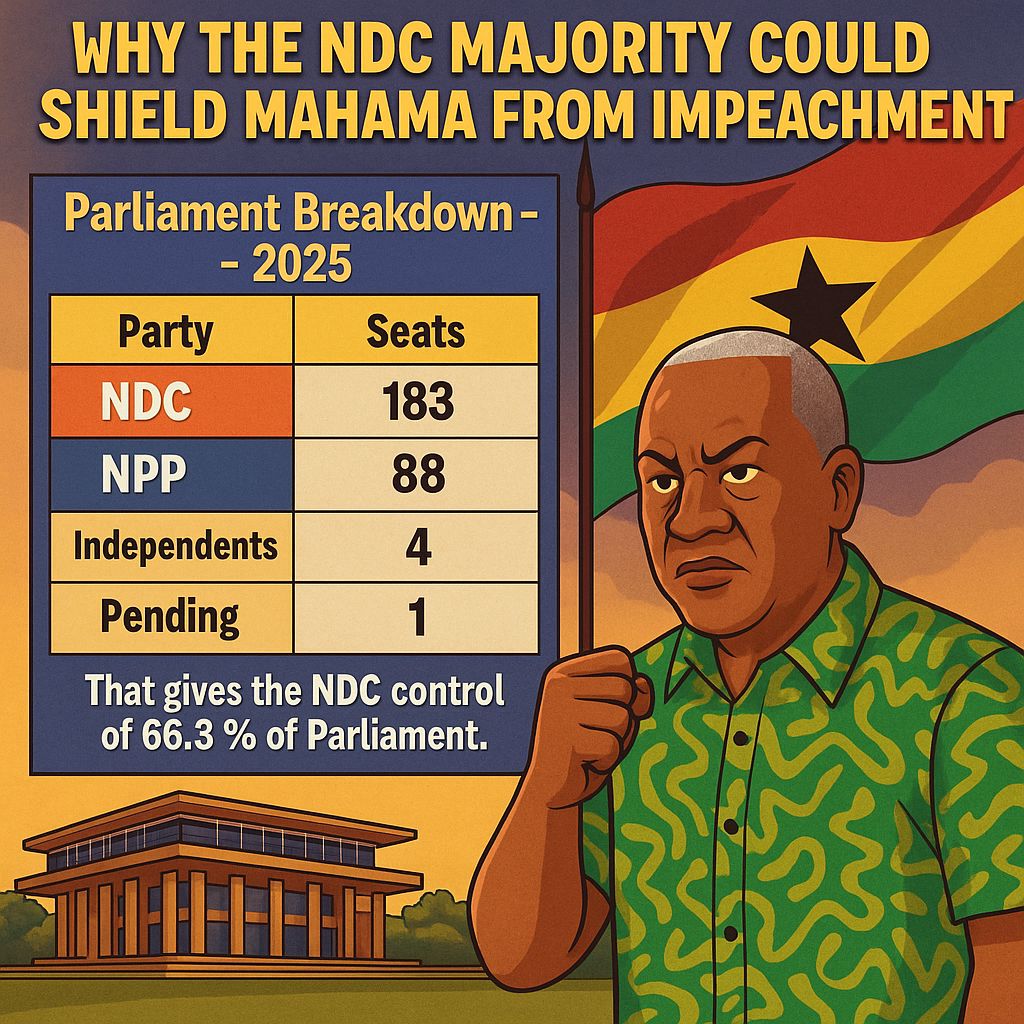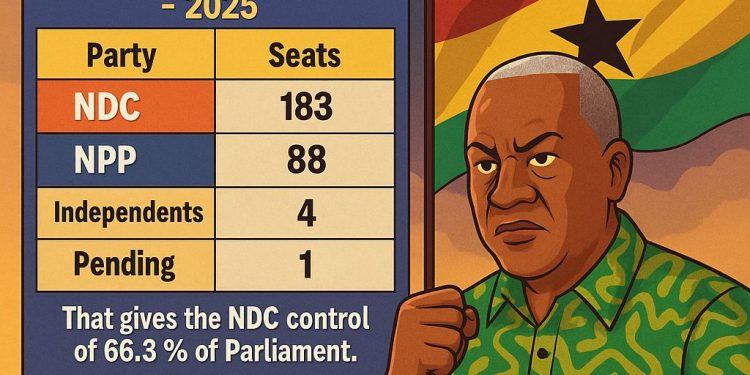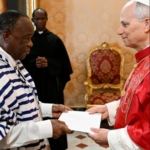
As public debate intensifies around the President’s recent foreign travel while the Vice-President was reportedly unwell, questions of constitutional breach and impeachment have emerged.
But what does the law actually say—and can President Mahama be impeached?
The Legal Threshold for Impeachment
Article 69 of Ghana’s 1992 Constitution outlines the process:
A sitting President may be removed from office for:
• Violation of the Constitution,
• Stated misbehaviour, or
• Inability to perform functions of office.
If, as publicly indicated by the President himself, both the President and Vice-President were simultaneously outside the country, with the Vice-President receiving medical care and no formal Acting President appointed, this may constitute a breach of Article 60(8).
That provision requires the Vice-President to perform presidential functions in the President’s absence. Where both are unavailable, constitutional continuity demands that an Acting President be designated to maintain lawful executive authority.
Without such delegation, the state may be deemed to have been left without a functioning executive, raising concerns under Article 1(2), which declares that any act inconsistent with the Constitution is void.
Can Parliament Remove Him? The Maths Says No.
Impeachment is not merely legal—it is profoundly political. Here’s why:
• Parliament currently consists of 276 seats.
• Impeachment requires a two-thirds majority—184 votes.
• The NDC holds 183 seats. The NPP, 88. Independents, 4. One seat remains pending.
This means that unless every NDC MP breaks rank, and at least one Independent or NPP member joins them, impeachment is procedurally dead on arrival.
Speaker’s Role: Political Leverage or Constitutional Duty?
The Speaker of Parliament—Alban Bagbin—which some consider an NDC affiliate, plays a pivotal role. Article 69(2)(a) mandates that he must refer any notice of impeachment to the Chief Justice within 7 days.
However, speakers can delay through procedural objections or by questioning the admissibility of motions—creating tactical delays that weaken momentum.
An Acting Chief Justice—depending on their independence and procedural stance—would be constitutionally bound to establish a tribunal if the Speaker refers the matter. However, the real procedural gatekeeper remains the Speaker of Parliament, whose political alignment with the NDC could influence the pace and posture of any referral, making fast-tracking unlikely.
Judicial Oversight vs Political Will
Once the matter reaches the Chief Justice, the formation of a 5-member tribunal is mandatory. However, reaching that stage requires a compliant Speaker and a clean procedural motion—rare in politically charged climates.
Once the matter reaches the Chief Justice, the formation of a 5-member tribunal under Article 69(2)(b) is mandatory and largely procedural. The Chief Justice has no discretion to reject or delay this step once a valid referral has been made by the Speaker.
However, reaching that stage is where the constitutional machinery can be quietly obstructed—and this is where the Speaker becomes pivotal.
By “compliant Speaker,” we refer to a Speaker who objectively follows the Constitution’s mandate under Article 69(2)(a), which requires them to forward any impeachment notice to the Chief Justice within seven days. In practice, however, a Speaker—particularly one aligned with the ruling party, such as the current NDC Speaker—may:
• Question the admissibility or procedural form of the impeachment notice,
• Delay receipt or acknowledgement of the motion,
• Request revisions or further clarification from the initiators, or
• Discretely stifle momentum through parliamentary rules or timing strategies.
This sort of procedural “slow-walking” is often difficult to challenge legally, yet it can effectively derail impeachment efforts before they even begin—without violating the letter of the law.
The implication is significant: even if there is legal merit to an impeachment motion, and even if the one-third MP threshold is met, the Speaker’s role as gatekeeper means that the matter may never reach the tribunal stage. In such cases, constitutional accountability is subordinated to partisan loyalty and political calculus, eroding public confidence in Parliament’s neutrality as a constitutional check.
Constitutionally Possible. Politically Improbable.
The impeachment of President Mahama is legally plausible if the allegations regarding absence and executive vacuum are substantiated. But the NDC’s iron grip on Parliament, combined with institutional alignment and party loyalty, makes actual removal nearly impossible.
For the real battleground is not in Parliament—but in public discourse, judicial interpretation, and civic pressure. In the coming weeks, watch not just for legal filings, but for how the public narrative is shaped.
The real battleground is no longer Parliament—where party-line voting makes constitutional accountability nearly impossible. Instead, it has shifted to the court of public opinion, the interpretive power of the judiciary, and the collective voice of civil society.
In high-stakes constitutional disputes such as this, the law is only one terrain. Equally important is the narrative—how the public perceives what has occurred, and whether institutions are seen to be acting in good faith. If the Speaker delays referral, or the executive appears to bypass constitutional checks, the onus may fall on civic watchdogs, legal commentators, and the media to frame the issue for national consciousness.
Moreover, the judiciary’s role becomes magnified—not just to resolve legal ambiguity, but to restore constitutional clarity in a moment that threatens to destabilize institutional trust. Public pressure, amplified through strategic litigation, social mobilization, and civic education, may be the only effective tool left to demand accountability when the formal parliamentary route is procedurally locked.
So in the coming weeks, do not look only for writs and rulings. Watch how the nation reacts. Watch how the story is told. Because ultimately, constitutional order survives not only through law—but through collective vigilance.
A Watershed Moment, or the Beginning of a Constitutional Unraveling?
This moment is not isolated—it is the latest domino in a chain reaction that threatens the very architecture of Ghana’s constitutional democracy.
It began when the then-opposition NPP challenged the Speaker’s declaration of a de-facto NDC majority, prompting judicial review of a matter long understood to be political, not legal. The Supreme Court—then under NPP-appointed leadership—intervened in a parliamentary procedural ruling, raising early alarms about the judiciary’s neutrality in political contests.
Fast forward to the NDC’s return to power: the judiciary is now facing its own internal reckoning. The sitting Chief Justice is suspended, and a removal process has been initiated under a government that previously objected to judicial overreach.
An Acting Chief Justice is now in place, casting a long procedural shadow over any pending constitutional references, especially those that might relate to presidential conduct or separation of powers.
Now, the opposition—ironically the same NPP that once invoked the Court to check Parliament—is considering impeachment proceedings against President Mahama for allegedly breaching the Constitution while abroad.
These are not isolated events. Together, they represent the systemic erosion of the separation of powers—with each arm of government weaponizing its authority depending on who holds political power.
What does this mean for Ghana?
Ghana stands at a constitutional inflection point.
The traditional guardrails—judicial independence, parliamentary autonomy, and executive restraint—are being hollowed out by partisan calculation. The precedent being set is dangerous: that constitutional boundaries are flexible, dependent on electoral outcomes, and reversible depending on who sits in the chair.
If this trend continues, future Chief Justices will be suspended at political convenience. Speakers will be challenged for their rulings by whichever party is out of power, and Presidents will either override or be overridden, depending on which faction dominates the court of the day.
This is not merely an institutional crisis—it is the slow corrosion of constitutional culture.
The Real Danger: No More Separation of Powers
If left unchecked, Ghana may be headed for a permanent collapse of institutional independence, where no branch of government truly checks the other. Instead, we will see rotating invasions—each new majority using the Constitution as a tool of conquest, rather than a restraint on power.
What we are witnessing may be a watershed moment, yes. But if the nation does not course-correct, it will become an eternal moment—one in which the idea of checks and balances ceases to exist.
Final Word
Constitutionalism is not sustained by laws alone, but by restraint, tradition, and mutual respect among institutions. The real test is not what each branch can do, but what it chooses not to do.
Because once all three branches forget their boundaries, it’s not just the Constitution that collapses—it’s the Republic that follows.
Amanda Clinton is a Ghanaian lawyer, legal commentator, and Founding Partner of The Law Office of Clinton Consultancy. She has advised across constitutional, commercial, and international law matters and frequently contributes to national discourse on legal and governance issues.
By Amanda Clinton, Legal Analyst & Managing Partner, Clinton Consultancy.
MSc. In African Politics (SOAS, London)
DISCLAIMER: The Views, Comments, Opinions, Contributions and Statements made by Readers and Contributors on this platform do not necessarily represent the views or policy of Multimedia Group Limited.
DISCLAIMER: The Views, Comments, Opinions, Contributions and Statements made by Readers and Contributors on this platform do not necessarily represent the views or policy of Multimedia Group Limited.
- President Commissions 36.5 Million Dollars Hospital In The Tain District
- You Will Not Go Free For Killing An Hard Working MP – Akufo-Addo To MP’s Killer
- I Will Lead You To Victory – Ato Forson Assures NDC Supporters
Visit Our Social Media for More




